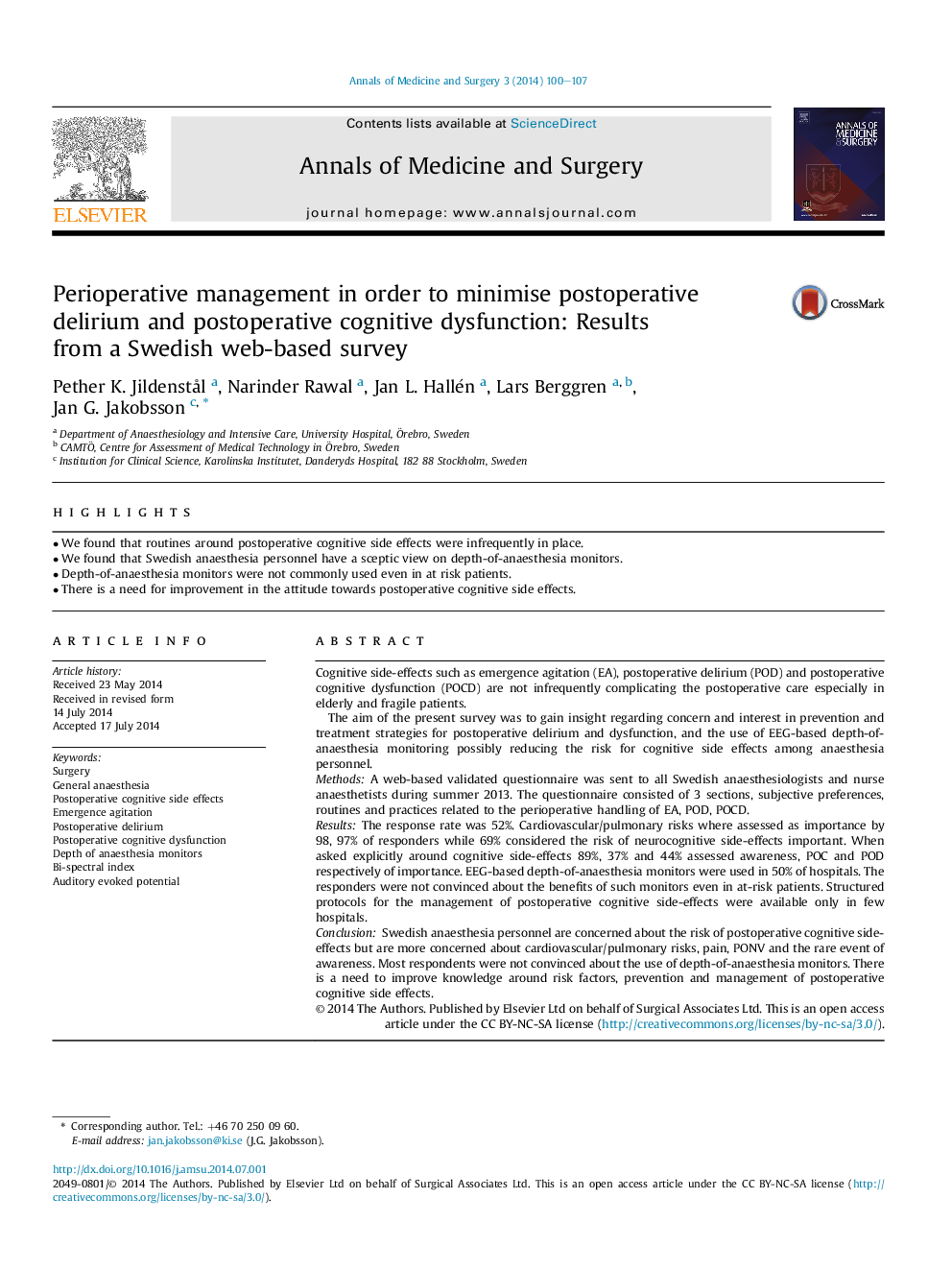| کد مقاله | کد نشریه | سال انتشار | مقاله انگلیسی | نسخه تمام متن |
|---|---|---|---|---|
| 4195582 | 1608931 | 2014 | 8 صفحه PDF | دانلود رایگان |
• We found that routines around postoperative cognitive side effects were infrequently in place.
• We found that Swedish anaesthesia personnel have a sceptic view on depth-of-anaesthesia monitors.
• Depth-of-anaesthesia monitors were not commonly used even in at risk patients.
• There is a need for improvement in the attitude towards postoperative cognitive side effects.
Cognitive side-effects such as emergence agitation (EA), postoperative delirium (POD) and postoperative cognitive dysfunction (POCD) are not infrequently complicating the postoperative care especially in elderly and fragile patients.The aim of the present survey was to gain insight regarding concern and interest in prevention and treatment strategies for postoperative delirium and dysfunction, and the use of EEG-based depth-of-anaesthesia monitoring possibly reducing the risk for cognitive side effects among anaesthesia personnel.MethodsA web-based validated questionnaire was sent to all Swedish anaesthesiologists and nurse anaesthetists during summer 2013. The questionnaire consisted of 3 sections, subjective preferences, routines and practices related to the perioperative handling of EA, POD, POCD.ResultsThe response rate was 52%. Cardiovascular/pulmonary risks where assessed as importance by 98, 97% of responders while 69% considered the risk of neurocognitive side-effects important. When asked explicitly around cognitive side-effects 89%, 37% and 44% assessed awareness, POC and POD respectively of importance. EEG-based depth-of-anaesthesia monitors were used in 50% of hospitals. The responders were not convinced about the benefits of such monitors even in at-risk patients. Structured protocols for the management of postoperative cognitive side-effects were available only in few hospitals.ConclusionSwedish anaesthesia personnel are concerned about the risk of postoperative cognitive side-effects but are more concerned about cardiovascular/pulmonary risks, pain, PONV and the rare event of awareness. Most respondents were not convinced about the use of depth-of-anaesthesia monitors. There is a need to improve knowledge around risk factors, prevention and management of postoperative cognitive side effects.
Journal: Annals of Medicine and Surgery - Volume 3, Issue 3, September 2014, Pages 100–107
